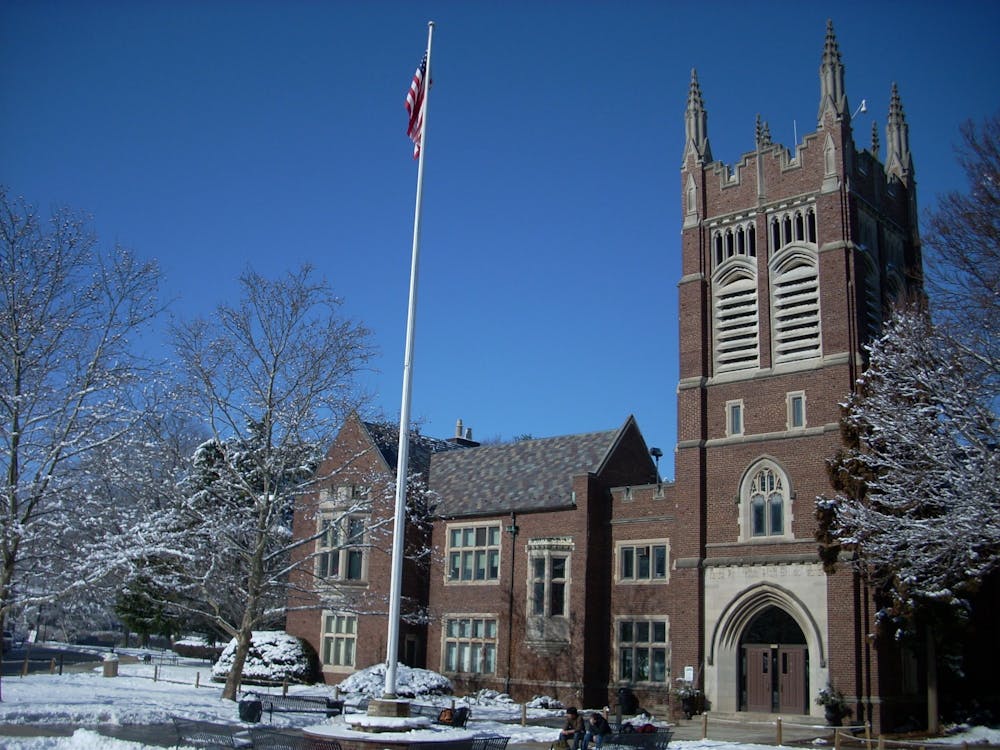The Princeton Board of Education faced widespread backlash following the adoption of an updated communications charter, which residents perceived to limit the speech of officials. The agreement, adopted at the Board’s meeting on Oct. 29, placed restrictions on media contact and information sharing.
After opposition from board members and the larger Princeton community, the Board voted to strike contentious language from the now-revised document.
The provisions under fire included an order that “Board members will serve as ambassadors for their district, emphasizing the positive aspects of the district,” and a requirement that “Information prepared for deliberative purposes, will not be shared. If there is any question whether information is confidential, Board members will consult with the superintendent in advance.”
The original communications agreement passed, with Board members Beth Behrend, Jessica Deutsch, Betsy Kalber Baglio, Brian McDonald, Gregory Stankiewicz, Michele Tuck-Ponder, and Peter Katz voting in favor, and board members Debbie Bronfeld, Daniel Dart, and Bill Hare voting in opposition.
Others voiced frustration with the perceived inability of board members to speak openly with the press. The guideline states that “The Superintendent will serve as the spokesperson for the district with the media,” and that “The Board President will serve as the spokesperson for the board with the media.”
At the Oct. 29 meeting, school board attorney Stephen Fogarty noted that board members are permitted to speak to the press, so long as individuals indicate that they are not speaking in an official capacity as a member. By Fogarty’s explanation, board members are permitted to speak openly as taxpayers.
Board member Tuck-Ponder defended the resolution in agreement with Fogarty. “You can certainly exercise your right to speak. You just have to clarify that you’re not speaking for the Board as a whole … so when you’re speaking, you’re speaking as an individual who just happens to be a member of the board.”
Conversely, board member Dart voiced dissent. “I want to reference our Board Goals, where we say we’re going to try to communicate in an open and transparent manner, and this seems to pull us away from it,” Dart said during the meeting. “This looks like it’s trying to reduce communications by individual board members.”

According to The Princeton Packet, this policy shift brought Princeton into alignment with rules in the neighboring Montgomery, Lawrence, and Hopewell Valley school districts. The three jurisdictions follow identical regulations.
In a letter to the editor published on Nov. 20 in Town Topics of Princeton, residents indicated their ire with the communications agreement.
The piece explained that “The Princeton Board of Education (BoE) has just mandated that its members may not publicly question School Board actions and policies,” and that “[School Board members] are elected to provide oversight for the community. How much oversight can be exercised if all communications must pass through the superintendent?”
On Nov. 25, Board President Behrend issued a statement to the press regarding the newly adopted statute.

“It is important to understand that these are voluntary guidelines, not a mandate, which simply summarize our existing policies and procedures,” Behrend wrote. “They are based on a NJ School Boards Association ‘best practice’ template that restates the legal and ethical obligations of school board members under New Jersey law.”
Behrend continued, emphasizing the intention of the Board to enable members to speak without restriction.
“The … template included a line stating that Board members ‘serve as ambassadors for their district, emphasizing the positive aspects of the district.’ We initially understood this language as encouraging members to share with the community the many good things happening in our schools. In no way did we intend to limit the speech of our Board members ….”
In front of an 11 person audience, the Board presented and approved a revised version of the communications agreement at a special meeting held on Dec. 3. The body largely discussed the sentence, “Board members will serve as ambassadors for their district, emphasizing the positive aspects of the district.”
“It’s when you start adding in language that describes how you’re allowed to phrase stuff, what you’re allowed to say, that’s when it becomes a problem to me,” Hare said at the special meeting.
“That [sentence] had unintentionally made things confusing and introduced unintended consequences,” Deutsch said. “[It] was perceived that we would be somehow surrendering our independent thought or freedom of speech, and I for one never imagined that was on the table.”
Though the Board ultimately motioned for the removal of the single controversial sentence in light of the aforementioned concerns, and approved the revised document, all other clauses in the agreement remained unchanged.
The Princeton Board of Education is scheduled to meet again in public session on Dec. 17 at 7:30 p.m. The Board meets at 25 Valley Road, Princeton, NJ 08544.








